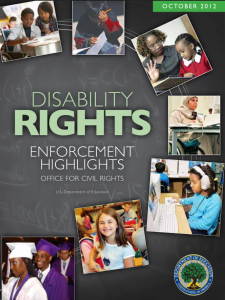Following the third debate between President Obama and his Republican opponent Mitt Romney, Ann Coulter a news “personality,” tweeted out, ““I highly approve of Romney’s decision to be kind and gentle to the retard”, referring to President Obama. Immediately and justifiably a large number of people began to call Coulter out for her offensive word choice, which upset people for two main reasons: 1) that she finds it okay to use such a demeaning term to the mentally disabled, and 2) that she would feel it is okay to speak about an elected president of the United States in such a manner. Coulter’s defense of her “retard” comment reveals her true colors.
My biggest problem with Ann Coulter is what her actions show about her character. I do not follow Ann Coulter so maybe my thoughts are a statement of the obvious to people who do, but through this controversy, my perception of Ms. Coulter is that she is a bully, the worst kind of bully. The type of person who targets those who least have the ability to protect themselves. Bullying of special needs children is a huge problem in our world. In my special education law practice, I work with developmentally disabled children every day. Among the many challenges they must face, one particularly common and galling one is bullying. Whether it is name calling or physical assaults, special needs children are far more likely to be bullied than typical school children.
So, when Ann Coulter chooses to use a word that Peirs Morgan correctly noted was the equivalent of the “N” word to black Americans, she intentionally choose a word that she must know brings pain to a great many people who simply do not deserve it. This begs the question of why, what is her motive for doing this? Well, it appears for the basest of reasons, to draw attention to herself because she has a new book being released, Mugged: Racial Demagoguery from the Seventies to Obama. According to David Phillips,
When Coulter makes her outlandish and offensive comments, more often than not, she has a new book that she wants to promote.
Based on this, it is safe to assume that so long as Ms. Coulter profits through increased book sales, she does not care upon whom she needs to step on to get them. Even her defense of her comments was off-putting. First, she attacked liberals who had made offensive comments about the disabled, mentioning Obama’s Special Olympics” comment concerning bowling and also Al Gore’s comment concerning right wingers having an “extra chromosome.” (meaning have Down’s Syndrome) There are some huge differences between these comments and hers. First, both President Obama and Al Gore apologized for their comments rather than going on the offensive. Second, neither of them made the comments for financial gain, as Ms. Coulter appears to be doing.
Finally, her defense that “retard” is a synonym for loser just does not hold water. According to Dictionary.com, the N word means “a victim of prejudice similar to that suffered by blacks.” I’m hard pressed to believe that Ann Coulter would tweet the N word and try to defend herself by saying that she felt the person she was tweeting about was a victim of prejudice.
Ann Coulter is receiving a great deal of blow back for her tweet. My hope is that if she receives enough, she may actually recognize the error in her ways. Being cynical though, I can say an apology coming out after her comments have gotten her on as many talk shows as possible promoting her new book would be worse than worthless.
If you would like to watch an eloquent rebuttal to Ann Coulter’s comments given by John Franklin, a disabled individual, click here.



